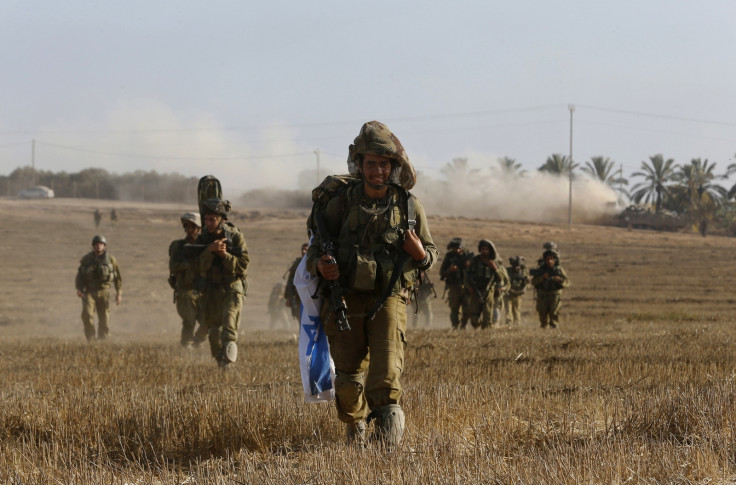Hadar Goldin and 'Hannibal Directive': Israel's Nightmare Dilemma to Stop Soldier Becoming Hamas Pawn

Following the capture of Israel Defence Forces (IDF) soldier Hadar Goldin, reports are circulating that the Israeli military may invoke the covert 'Hannibal Directive' to prevent the Second Lieutenant being used as critical leverage in the ongoing Gaza conflict.
The controversial protocol, introduced in the late 1980s, allows IDF commanders to take any necessary action to foil an abduction of a soldier, even if it means endangering the life of the captive Israeli.
"The message is that no soldier will fall captive, and it's an unequivocal message," Brigadier-General Motti Baruch told Haaretz after the capture of Gilad Shalit in 2006.
Every Israeli combat soldier has the order to stop the capture of his or her comrades at any cost. The plan has been controversial within the IDF, and has led to several incidents where troops have refused to carry out the directive on legal grounds.
Massive #Israel bombardments now in the southern #Gaza Strip in attempt to prevent IDF captive being spirited away (Hannibal directive)
— Anshel Pfeffer (@AnshelPfeffer) August 1, 2014A number of prominent Israeli commentators, such as Haaretz's Anshel Pfeffer, are suggesting that the IDF has already invoked the protocol, bombing an area of the southern Gaza Strip where Goldin was suspected of being held by Hamas militants.
Despite reports of the 'Hannibal Directive' being issued, the condition of Goldin after his capture is currently unknown. During 'Operation Protective Edge', Hamas has claimed to have captured another soldier, Oron Shaul, but the IDF concluded the Staff Sergeant had been "killed in action".
Better dead than captured
The protocol is founded on a fear that any captive Israeli will be used as a bargaining chip, like Shalit, who was held for five years before being released in return for 1,027 Palestinian prisoners.

There are also fears that a soldier could be smuggled across the Rafah border with Egypt and transferred to an unknown location anywhere in the world, lowering the chances of rescuing the captive.
Thus, the 'Hannibal Directive' - named after the Carthaginian general who killed himself with poison rather than be captured by the Romans - is based around the belief that a soldier is better dead than in captivity, a view elucidated by Shaul Mofaz, former IDF Chief of Staff.
"In certain senses, with all the pain that saying this entails, an abducted soldier, in contrast to a soldier who has been killed, is a national problem," he told Israeli daily Yedioth Ahronoth.
During the IDF's 2008 'Operation Cast Lead' on the Gaza Strip, a Golani Brigade commander told his soldiers: "No Battlion 51 soldier is abducted, at any price. [He should] blow himself up with a grenade together with the abductors rather than be captured."
Col. Lior Lotan, the former head of the IDF's hostage negotiation team, has said that Goldin must not be allowed to become a second Gilad Shalit situation.
"These are the golden hours, the space in which the IDF is trying to contain the area and intercept the plan of the kidnappers," Lotan told the Times of Israel.
"After this it turns into an intelligence, special operation situation and could impact the strategic situation in the region."
A captured IDF soldier is viewed as the ultimate prize for Hamas and under no circumstances does Israel wish to give this "weapon" to the militant group to use as leverage against the Jewish homeland.
What is less clear is how Israel will choose to neutralise the threat of Hamas holding the golden ticket of an Israeli soldier; whether they will attempt to retrieve Goldin from the Gaza Strip safely through negotiations or, as reported, use any means - such as shelling a dense area where he is believed to be held - in order to obtain his freedom.
There is, however, little doubt that the 23-year-old's capture is a game-changer in a conflict which has claimed the lives of more than 1,400 Palestinians and 56 Israelis.
© Copyright IBTimes 2025. All rights reserved.





















